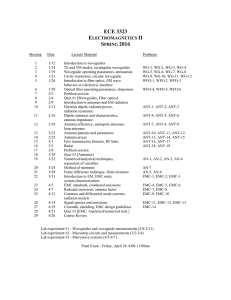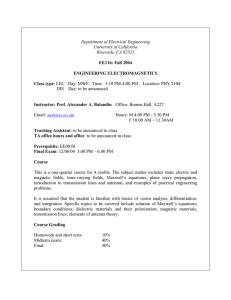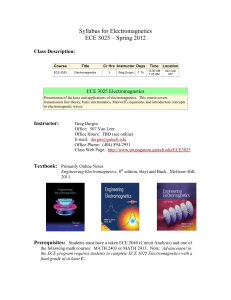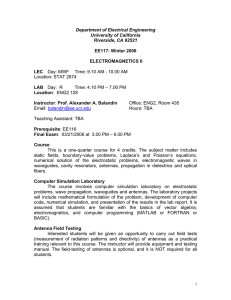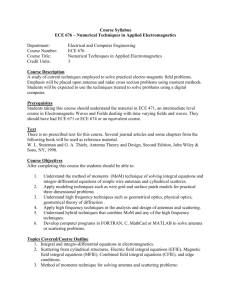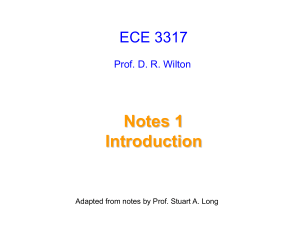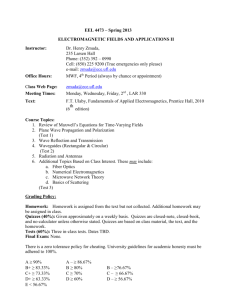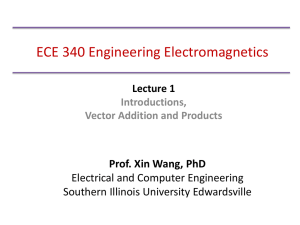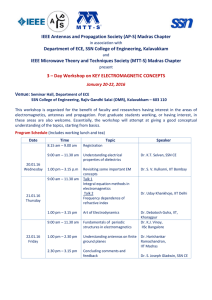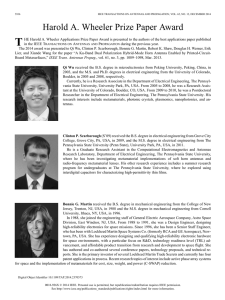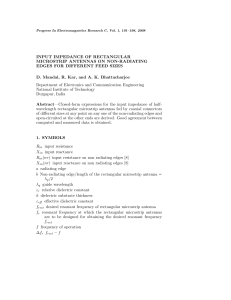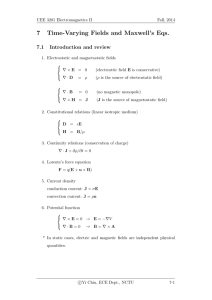ECE 675 (.doc)
advertisement
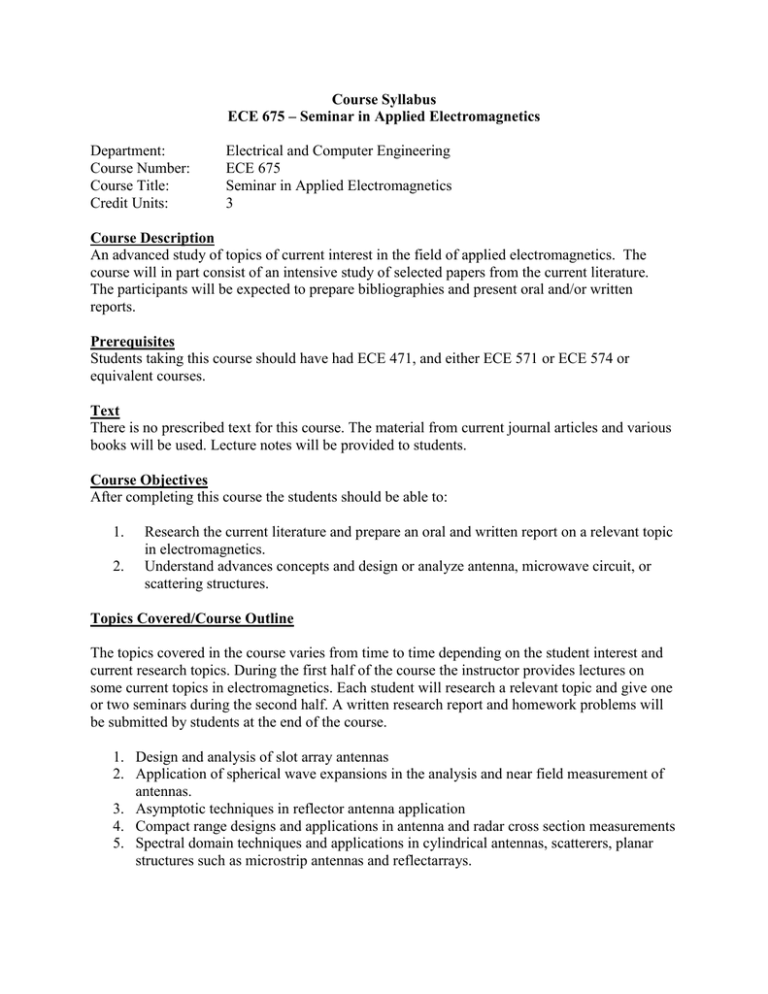
Course Syllabus ECE 675 – Seminar in Applied Electromagnetics Department: Course Number: Course Title: Credit Units: Electrical and Computer Engineering ECE 675 Seminar in Applied Electromagnetics 3 Course Description An advanced study of topics of current interest in the field of applied electromagnetics. The course will in part consist of an intensive study of selected papers from the current literature. The participants will be expected to prepare bibliographies and present oral and/or written reports. Prerequisites Students taking this course should have had ECE 471, and either ECE 571 or ECE 574 or equivalent courses. Text There is no prescribed text for this course. The material from current journal articles and various books will be used. Lecture notes will be provided to students. Course Objectives After completing this course the students should be able to: 1. 2. Research the current literature and prepare an oral and written report on a relevant topic in electromagnetics. Understand advances concepts and design or analyze antenna, microwave circuit, or scattering structures. Topics Covered/Course Outline The topics covered in the course varies from time to time depending on the student interest and current research topics. During the first half of the course the instructor provides lectures on some current topics in electromagnetics. Each student will research a relevant topic and give one or two seminars during the second half. A written research report and homework problems will be submitted by students at the end of the course. 1. Design and analysis of slot array antennas 2. Application of spherical wave expansions in the analysis and near field measurement of antennas. 3. Asymptotic techniques in reflector antenna application 4. Compact range designs and applications in antenna and radar cross section measurements 5. Spectral domain techniques and applications in cylindrical antennas, scatterers, planar structures such as microstrip antennas and reflectarrays. Relationships to Program Outcomes This course supports the achievement of the following outcomes: a) Ability to apply knowledge of advanced principles to the analysis of electrical and computer engineering problems. b) Ability to apply knowledge of advanced techniques to the design of electrical and computer engineering systems. c) Ability to apply the appropriate industry practices, emerging technologies, state-of-the-art design techniques, software tools, and research methods for solving electrical and computer engineering problems. d) Ability to use the appropriate state-of-the-art engineering references and resources, including IEEE research journals and industry publications, needed to find the best solutions to electrical and computer engineering problems. e) Ability to communicate clearly and use the appropriate medium, including written, oral, and electronic methods. f) Ability to maintain life-long learning and continue to be motivated to learn new subjects. g) Ability to learn new subjects that are required to solve problems in industry without being dependent on a classroom environment. h) Ability to be competitive in the engineering job market or be admitted to an excellent Ph.D. program. Prepared by: Sembiam R. Rengarajan February 14, 2003
